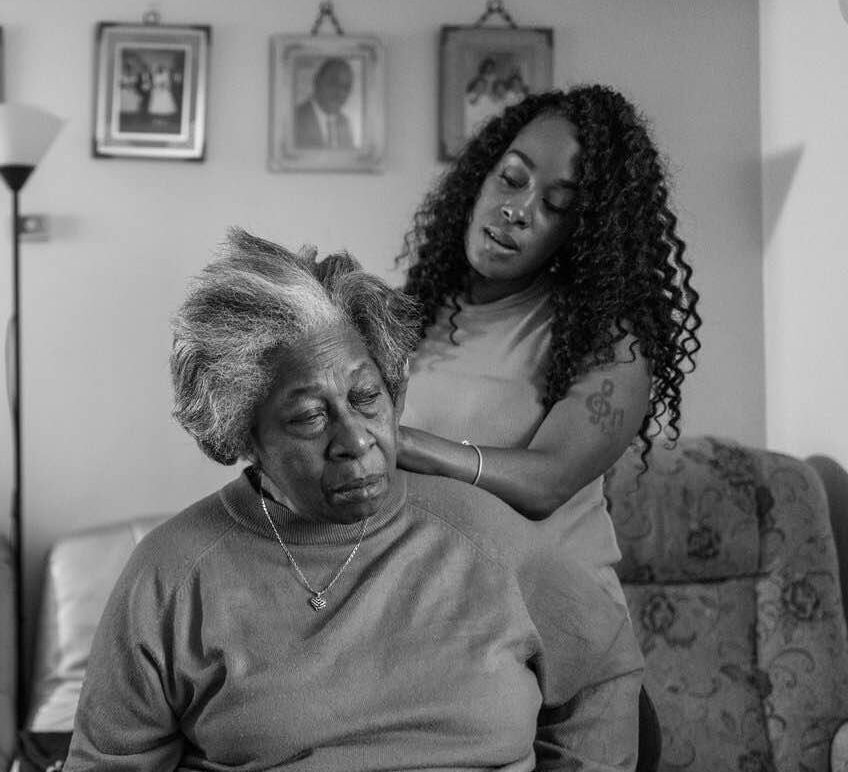FOR CARIBBEANS who boarded the Empire Windrush and travelled to England in 1948, the journey took more than three weeks and cost the equivalent of £1,000 today. The cost and travel time meant that quick trips to visit family back in the Caribbean were out of the question for those who made their homes in Britain. Living in Britain meant being cut off from friends and relatives ‘back home’ in the Caribbean and across the wider global diaspora, in countries like Canada and the United States.
Over time, more affordable international travel and technological advancements have given rise to a new global connectedness. In stark contrast to a three week transatlantic voyage, the internet has enabled virtual journey times of less than a quarter of a second, helping many families rebuild bridges with relatives in the Caribbean, and enabling them to forge new links.
Advancements in instant messaging and video-conferencing have offered a new way for people living in the diaspora to participate in everyday life with friends and relatives in the Caribbean, shrinking the distance between them. Helena Hastings-Gayle, a teaching assistant from West London said that using digital platforms for everyday communication made it feel like relatives in the Caribbean were “just down the road”.
“[Using WhatsApp], I have long conversations about life, but we also talk about trivial things like clothes I want to buy or clothes I think they would suit,” she said.
Similarly, Lorna Irving, a social entrepreneur and one of a growing number of people born in the Diaspora who have decided to ‘return’ to the Caribbean, told me that instant messaging had allowed her to communicate with relatives on a “daily basis”.“ Even if you are not communicating with anyone directly, ”she said, “you’re aware of the
contact taking place. Without the use of digital technology, I would lose the immediacy of the contact I have with a lot of people.
”The ability to instantly connect to relatives more than 5,000 miles away has allowed Caribbeans living in the diaspora to be part of important family events they would otherwise have missed.
“There have been weddings and funerals that I’ve attended, and [newborn] additions to the family have been introduced via digital technology”, Irving told me. Camille St-Omer Donaldson, a charity worker living in London, said that although her family has traditionally come together at in-person reunion events, the increased use of Zoom during the pandemic had spurred a discussion on whether to transition to virtual events instead.
As well as reconnecting families, digital technology is helping to drive a resurgence in people’s consciousness of their
roots, and shaping the way they think about the Caribbean. Technology is offering younger generations of Caribbeans who grew up in the diaspora an up to date glimpse into life in the islands beyond outdated descriptions handed down by older relatives.
“My memories of [St Lucia] are very much rooted in the past,” St-Omer Donaldson told me. “I now follow a few of my
cousins on Instagram and a few St Lucia news and music pages, and it’s weird to say but it’s modernised the country for me. “I actually want to go back and join the party scene – when I was younger I only got to experience parts of St Lucia my mum knew.”
She added that “without technology, I think I’d only be connected to a very old, outdated and historical version of
my home country”.
Hastings-Gayle explained that whilst her initial connection to the Caribbean had been solely through her grandparents, using Instagram and WhatsApp had helped her forge closer ties with younger relatives in Jamaica, giving her a
“stronger tie to the diaspora”.
“For a long time I never identified as Jamaican, but in the last couple of years, it [has become] one of my highest cultural identifiers,”
“For a long time I never identified as Jamaican, but in the last couple of years, it [has become] one of my highest cultural identifiers,” she said.
Dawn Butler, the Labour Member of Parliament for Brent Central and Chair of the All Party Parliamentary Group for Jamaica, acknowledged the critical role played by digital technology in bridging the gap between families split between the UK and the Caribbean. “I’ve been able to attend family weddings I wouldn’t have
been able to physically go to and even celebrate birthdays with virtual birthday drinks,” she told me.
“Being able to keep in close contact with communities back in Jamaica is so important and the ease in which we can do so now has improved exponentially in the last decade and even more so since the Coronavirus pandemic has started”.
Ms Butler added that with the right data protections and security, advancements in digital technology would play an
important role in strengthening bonds between the Caribbean and its diasporas.
“We can play much more active roles in our families’ and friends’ lives even if we don’t get to visit physically as much
as we would like to,” she said. Rather than serving solely as a historic point of departure from the Caribbean, the legacy
of Windrush is one of connection. With the help of technology, new generations of Caribbean’s are finding ways to
come together, changing what it means to be part of the diaspora.


Comments Form